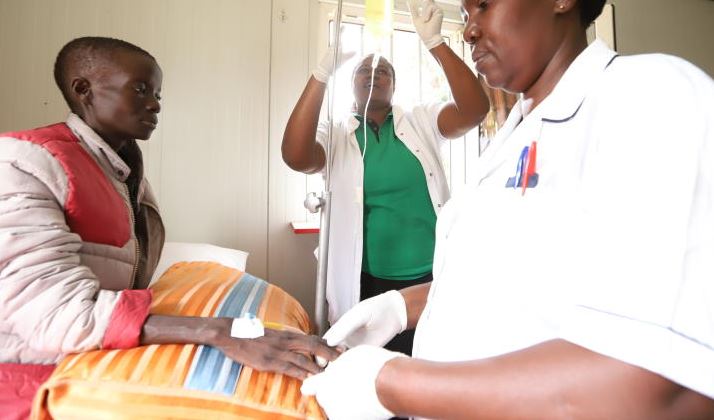
Palliative care nurses who attend to terminally ill patients say constant assurance, even if by virtual means, is important in the healing process.
Jane Ganda and Sylvia Otieno, palliative care nurses at Kisumu Hospice based at Jaramogi Oginga Odinga Teaching and Referral Hospital, say that even though the prevailing circumstances have forced them to reduce physical contact with patients, they call the patients to make them feel connected to the world away from hospital.
“It is important to check on them and advise them on home-based care. Of course personal visits are better, but for now, the terminally ill are the vulnerable population so we have to protect them,” she says.
Otieno says when the patients go to the hospice, they are not held by the nurses as was the case in the past.
“Even as I walk with them, I cannot hold their hands but keep explaining that it’s necessary to take precautions,” she says.
Cosmas Ngisa, a psychologist at the Jaramogi Odinga Teaching and Referral Hospital explains that the pandemic is causing anxiety not just to the vulnerable community but everyone.
He advises that when desperation, a sense of helplessness and loneliness creep in, people should shift their focus from bad news to different sources of information.
“Consuming reports about the outbreak and how many people are losing lives is leading to fear and panic,” says Ngisa, adding that more people are getting information from untrusted sites, which are feeding them with messages of hopelessness.
He encourages people to stay connected and maintain social networks through telephone or social media and by keeping personal daily routines and working towards goals even when social distancing.
“Learn simple daily physical exercises to perform at home so you can maintain mobility and reduce boredom,” he says.
Godfrey Ocholla, a recovered drug addict who runs a mentorship programme in Nairobi says that forming virtual groups helps in providing social support.
He explains that people who have battled addiction in the past are more likely to relapse when they start feeling anxious and hopeless.
“There are threats of job losses, life is getting expensive and nobody knows how long this thing will last,” he says.
He advises recovered addicts against the temptation to drown their sorrows and worries in drugs and instead should consider the gains they have had when sober.
“If thoughts of going into drugs cross your mind, you should remember that addiction steals dreams, relationships, and it also takes away lives,” he says.
He says rehabilitation centres are now coming up with mechanisms to ensure that people do not sink back into addiction by assigning virtual mentors and having sessions online.
“You have to keep reminding yourself that you have the responsibility of creating the happiness you desire.”
 The Standard Group Plc is a multi-media organization with investments in media
platforms spanning newspaper print
operations, television, radio broadcasting, digital and online services. The
Standard Group is recognized as a
leading multi-media house in Kenya with a key influence in matters of national
and international interest.
The Standard Group Plc is a multi-media organization with investments in media
platforms spanning newspaper print
operations, television, radio broadcasting, digital and online services. The
Standard Group is recognized as a
leading multi-media house in Kenya with a key influence in matters of national
and international interest.











